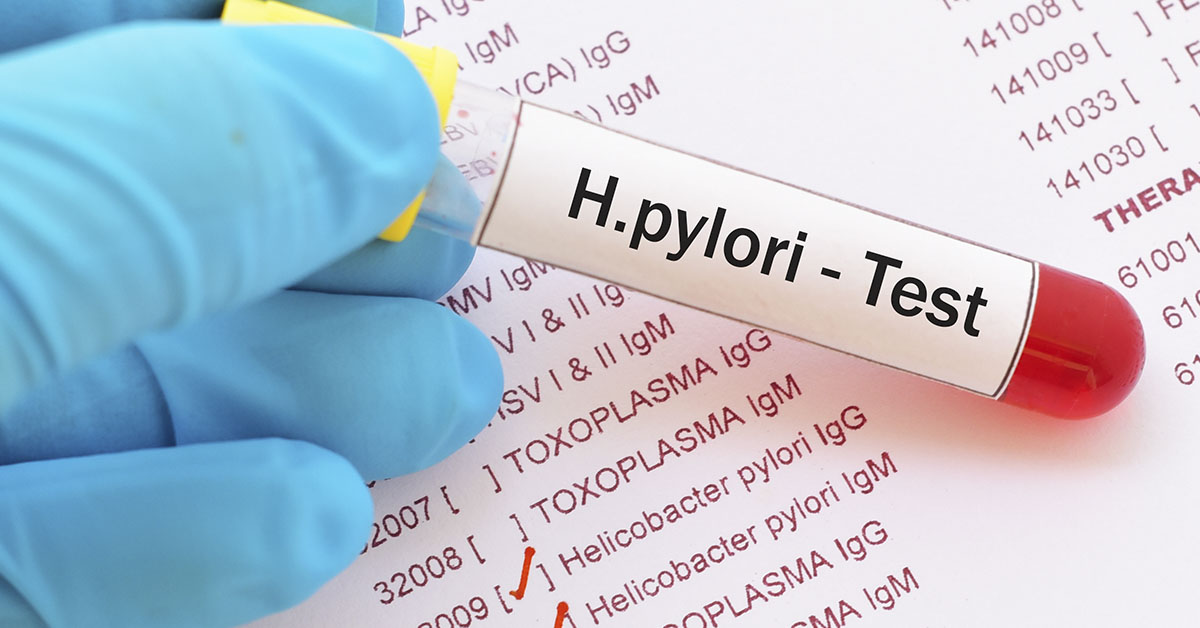If you are suffering from heartburn and bloating, it is possible that you may be suffering from an H. pylori (Helicobacter pylori) bacterial infection. The H. pylori bacteria is one of the most common causes of ulcers in the stomach and small intestine. The infection can also cause chronic gastritis, a condition where the stomach lining becomes inflamed and irritated. Thankfully, there are ways of getting rid of these infections, both medically and through diet.
What Is An H. Pylori Infection?

H. pylori is a type of bacteria that can infect the lining of your stomach and small intestine. When this happens, it can lead to ulcers and inflammation in these areas. In addition to causing gastritis and ulcers, H. pylori has also been linked with heartburn and bloating in some people. (1)
Read More: Common Heartburn Drugs Linked to Early Death, Study Claims.
What Causes H. Pylori Infection?

H. pylori is usually spread through contaminated food and water, or person-to-person contact. It can also be passed from an infected mother to her child during birth. They can occur at any age. However, older people are more susceptible to infection. (2)
What Are the Signs & Symptoms?

The signs and symptoms of H. pylori infection vary from person to person, but they generally include the following:
- Heartburn or acid reflux (burning sensation in your chest)
- Bloating after eating
- Nausea, vomiting, and indigestion
- Diarrhea or constipation
- Weight loss, lack of appetite, and poor absorption of nutrients from food
- Fatigue
How Do You Determine If One Has an H. Pylori Infection?

To determine if you have an H. Pylori infection, your doctor can either use a stool test, blood test, or breath test. The most common, however, is a stool test. However, symptoms of H. pylori infection are similar to many other common illnesses and conditions, so it’s important not just to rely on your own observations but also to consult your doctor for a diagnosis.
Read More: Dieticians Share Tips and Foods To Help Those Who Suffer from Acid Reflux and Heartburn
Are Natural Remedies That Have Been Shown To Help H. Pylori Infections?

The following are some natural remedies that have been shown to help H. pylori infections:
- Probiotics:
These live bacteria help fight H. pylori infection by competing for space in your gut. Probiotics can also reduce inflammation and improve immune function. (3) - Synbiotics:
These are probiotics combined with prebiotics, which are non-digestible fibers that feed the good bacteria. In addition to fighting H. pylori infections, they may also help reduce stomach acid production and improve immune function. - Green tea:
Green tea has been shown to reduce the levels of H. pylori, which may help fight the infection. In particular, a mouthwash made from green tea extract might effectively stop the bacteria’s growth. (4) - Manuka Honey:
Though there is no research that honey by itself can get rid of an H. Pylori infection, the research does show that it can inhibit the growth of the bacteria. Using honey in combination with traditional treatment methods can improve the outcome. - Olive Oil:
Olive oil has anti-inflammatory properties that may help with H. pylori infections. In vitro research shows that olive oil can inhibit the bacteria’s growth. (4,5,6). While this is just in vitro research, this could indicate that olive oil may help in some way with H. pylori infection. As long as you are not allergic, olive oil is a healthful foodstuff and is an extremely low-risk addition to your diet with many other benefits. - Licorice Root:
Licorice root has been shown to have anti-inflammatory properties that can help with H. pylori infections. The research shows that licorice root can inhibit the bacteria’s growth, which may reduce your symptoms if you suffer from an H. pylori infection. Talk to your doctor before adding licorice to your treatment, as there can be some negative sides to this herb. - Curcumin:
Curcumin, which is the active ingredient in turmeric, has been shown to have anti-inflammatory properties that can help with H. pylori infections. The research shows that curcumin can inhibit the bacteria’s growth. It is particularly effective when used in combination with traditional treatment. - Phototherapy:
Phototherapy is a treatment that uses ultraviolet light to kill the H. pylori bacteria. It’s an alternative to antibiotics and can be used in combination with them if your doctor recommends it.
How To Prevent An H. Pylori Infection

There are several things you can do to reduce your risk of getting H. pylori, such as:
- Avoid eating raw and undercooked meat, especially beef, pork, or lamb.
- Wash your hands often with soap and warm water before handling food.
- Avoid drinking untreated tap water or unpasteurized milk.
- Eat plenty of fruits and vegetables as they contain antioxidants that may help fight bacteria.
The Bottom Line

The best thing you can do is prevent infection altogether. Wash your hands often and well, especially after going to the bathroom or after being in public places such as public transport or the gym. Avoid raw or undercooked foods and dairy products, and don’t consume water unless you are sure that it is safe. This is especially important if you are traveling and don’t know about the country’s water sanitization practices. If you think you might have an H. Pylori infection, talk to a practitioner or medical professional to get tested.
Read More: 6 Natural Remedies for Heartburn and Bloating
Sources
- “Helicobacter pylori (H. pylori) infection.” Mayo Clinic
- “Helicobacter Pylori” Hopkins
- “H. Pylori Infection.” Examine
- “Natural Treatment for H. pylori: What Works?” Healthline. Annette McDermott and Corey Whelan. April 12, 2022.
Disclaimer: This information is not intended to be a substitute for professional medical advice, diagnosis or treatment and is for information only. Always seek the advice of your physician or another qualified health provider with any questions about your medical condition and/or current medication. Do not disregard professional medical advice or delay seeking advice or treatment because of something you have read here.

